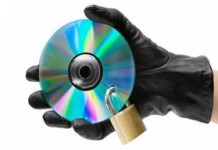So reports The Bookseller . ISBNs are part of this, as I have heard at a number of presentations, and publishers don’t seem to be doing the best job with them so far.
. ISBNs are part of this, as I have heard at a number of presentations, and publishers don’t seem to be doing the best job with them so far.
He went on to urge publishers to ensure the separate ISBNs were used on digital formats, to ensure they are counted differently to print formats. “Perhaps this is not being taken seriously enough now, but it will be taken seriously if a chart comes out and a major author isn’t number one because the publisher hasn’t put the right ISBN on the book,” he said. “We don’t want that to happen.”


































Much better to simply abandon ISBNs altogether for ebooks. A 1970s-era scheme barcoding books makes little sense for twenty-first century digital books distributed online. We need a new scheme designed specifically for digital.
For an analogy, think of the early cars (like the Ford Model T) with their tall. thin wheels, modeled on the wheels of horse-drawn carriages. Those wheels made sense for a light-weight vehicle pulled slowly through muddy dirt streets by horses. But they made no sense for the automobile, which went faster and needed much wider tires for acceleration and braking.
We’re in the same sort of transition. Those in publishing who’ve spent their entire careers with ISBNs seem unable to see just how ill-adapted they are to ebooks.
Michael, you are confusing ISBN (a number) with a scanner code used to represent the number on a physical product. An ISBN is simply a unique, numeric identifier and as such is very useful (databases, for example). To use cars … Would you rather call the police with a make, model, color description if your car is stolen, or would you prefer they also got the VIN number and plate number? ISBNs are perfectly adapted to. Not using them, or using them incorrectly, is what makes it difficult for Nielsen to provide reliable statistics.